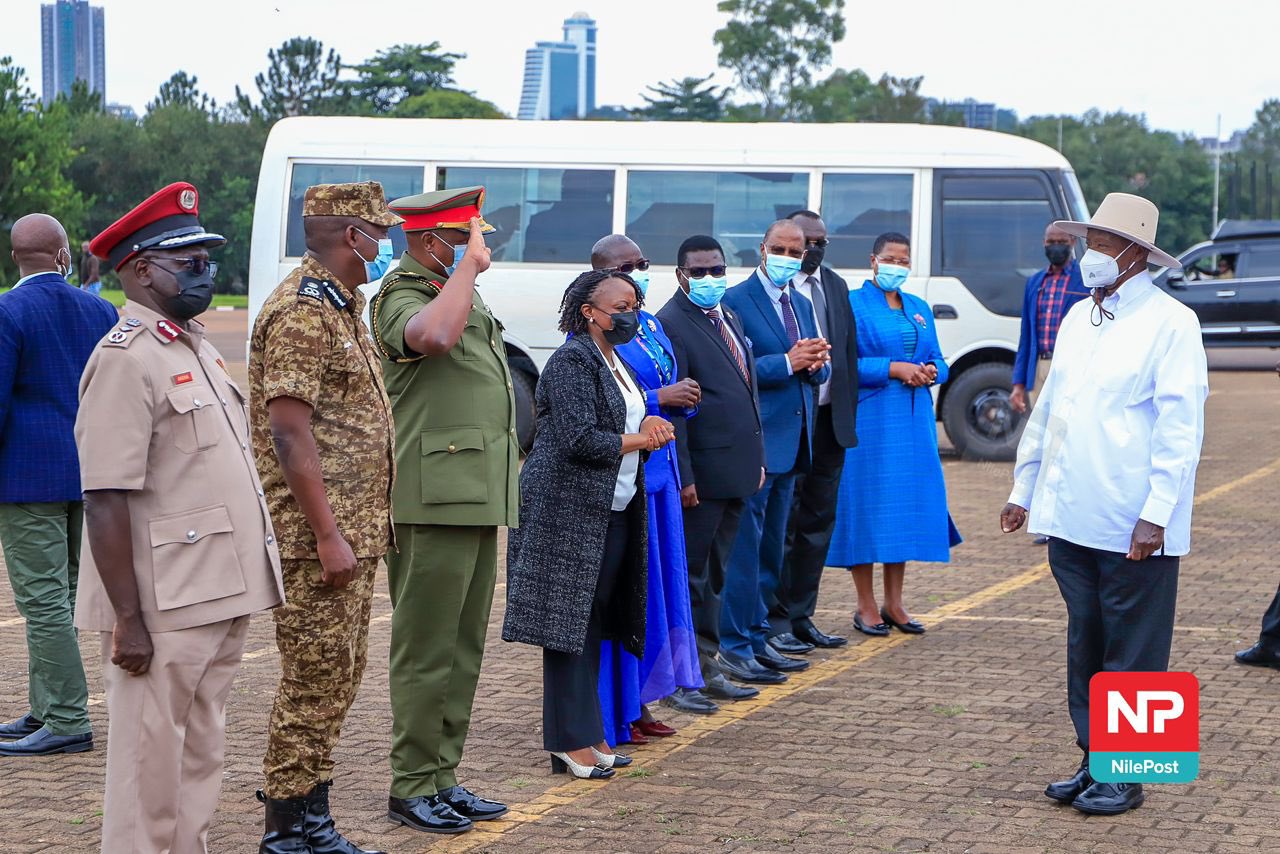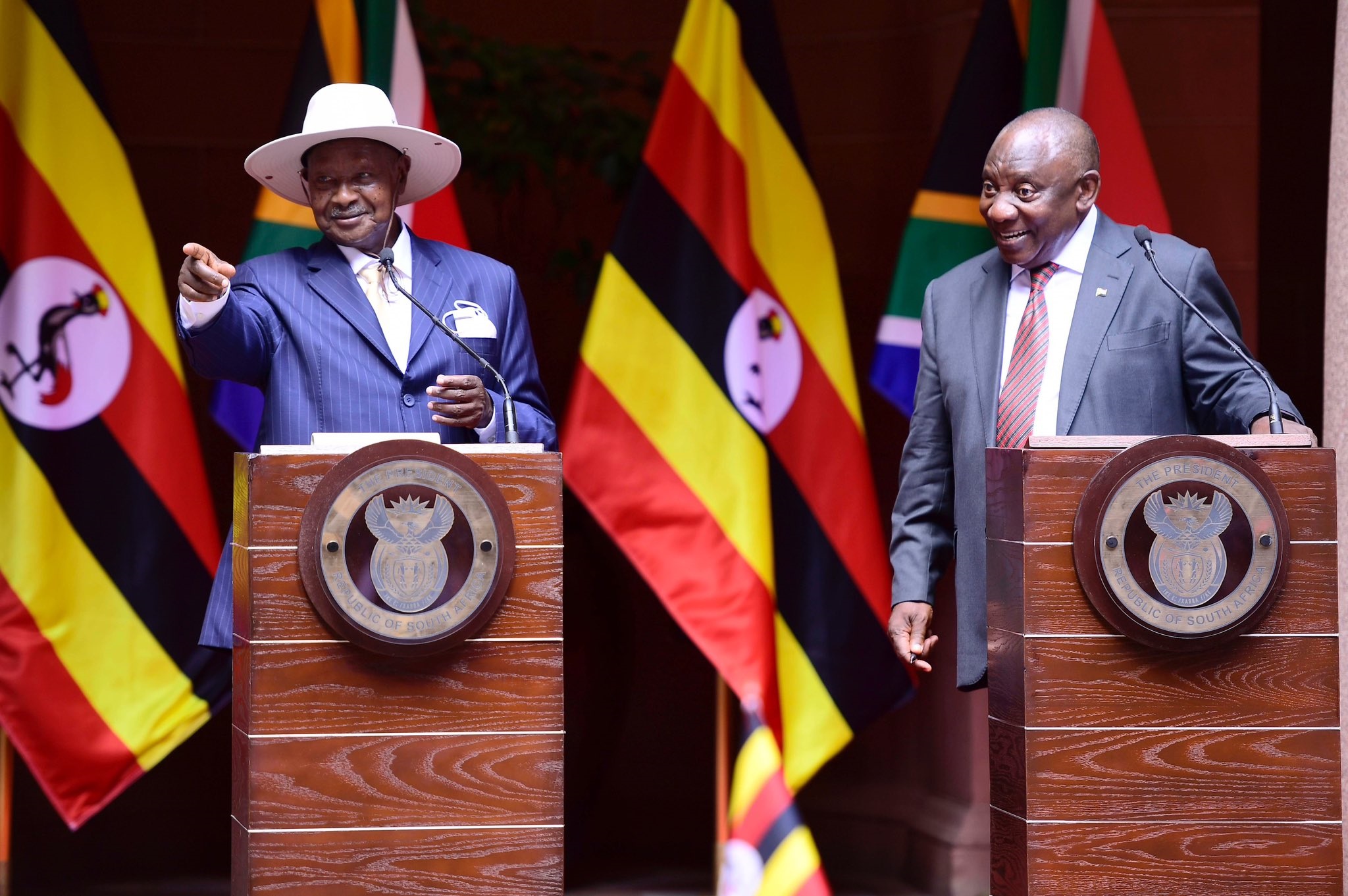Uganda @55: Have we progressed or regressed?
At 55 years of independence, some analysts say, Uganda is like a grown up person, who is still dependent on his or her parents for his daily survival.
In an ideal situation, a person at that age is supposed to have a house, some developmental projects and is in fact supposed to be looking towards retirement.
Keep Reading
As we celebrate independence day today, our economy is wobbling. Firms are closing shop, unemployment is still rife making daily survival a hustle.
Uganda’s for most part of her development budget still depends on donor partners.
The ongoing- key infrastructural projects, Entebbe Express Highway, the expansion of the Northern By-Pass in Kampala, the Karuma hydro electric plant are being funded by the Chinese.
And most importantly, the pearl of Africa remains a very strong member of the Commonwealth and still pays allegiance to the Queen of England.
From time to time, Uganda has to explain herself to the majesty for taking certain decisions.
Economic progress
Over its 55-year history as an independent state, there is no doubt that Uganda has registered some economic progress but economic experts reckon the growth could have been more robust.
At the time of independence in 1962, Uganda was considered as one of Africa's economically promising countries because It was a food basket and had a thriving manufacturing sector.
The well laid out transport infrastructure like the railway eased trade between Uganda and her neighbours and facilitated the export of key cash crops like coffee and cotton.
The gains from the imports helped the Milton Obote I government provide some of the best health and education services at the time.
But nine years after independence, the young state’s economic progress was derailed when Idi Amin seized power in a coup.
According to economists, the eight years of Amin’s rule crippled Uganda’s economic growth because he made a number of policy mistakes.
The military leader expelled all Asians whose businesses formed the backbone of Uganda’s economy.
Uganda’s economy started to recover after 1986, when a new breed of leaders led by President Museveni took over the reins of power.
With the assistance from the World Bank, International Monetary Fund (IMF) and other partner states, the National Resistance Movement (NRM) enacted that reforms aimed at changing the economy.
It embraced free market reforms in 1987; which included the privatization of industry and services, and the liberalization of the exchange rate system.
According to the World Bank, the interventions have led to a sustained period of high economic growth (averaging 7% per annum) between 1987 and 2010.
However, although economic progress has been recorded over the 55 years, the question of governance and political transition still hangs over the country like the sword of Damocles. Museveni who has been in power was set to retire in 2021, when he makes 75 years of age.
But there are attempts to amend the Constitution and lift the presidential age-limit.
Political Instability
Dr Frank Nabwiso, a renowned historian and academic, says Uganda’s progress has been affected by political instability and unpredictability since independence.
“There has been political instability at different stages in Uganda’s history,” Nabwiso said.
In 1966, Apollo Milton Obote, then prime minister summoned all MPs to parliament and told them to pass a new Constitution, whose draft they had not even seen.
Nabwiso said this was clear interference with the legislature because Obote used threats to cajole them.
He later constituted them into a Constituent Assembly (CA) and a new Constitution, which came to be known as the pigeon-hole constitution, was passed with little ceremony.
It gave Obote sweeping powers and abolished kingdoms.
This caused tensions between the central government and federal states, especially Buganda, and in the end Sir Edward Mutesa, Uganda’s first president was exiled only after four years of Uganda’s independence.
As a token of appreciation, the CA members were also declared new MPs without undergoing a popular vote and their term of office was extended.
Because of the lack of respect for the doctrine of separation of powers and basing so much on military support, Obote’s government slowly turned into a one-party rule under the Uganda People’s Congress (UPC).
When Amin ousted Obote in a coup in 1971, he ignored the other two arms of government and ruled by a series of decrees.
He became the chief prosecutor and judge.
He was the defacto governor bank of Uganda as well as the executioner-in-chief.
Those who disagreed with him ended up dead under mysterious circumstances.
It took the intervention of Tanzanian forces in 1979 to throw out Amin’s murderous regime.
Prof Yusuf Kironde Lule, took over but his reign lasted only 68 days.
In 1980, after a controversial election, Obote took over power but his second reign did not last long.
Yoweri Kaguta Museveni, who had been defeated in the 1980 election took up arms and eventually succeeded in 1986 after five years of bush war.
In December 1988, two years after taking over, the National Resistance Council (NRC) enacted Statute No.5 of 1988 which established the Uganda Constitutional Commission and gave it responsibility to start the process of drafting a new constitution.
In 1994, a Constituent Assembly was elected which later enacted the 1995 Constitution.
Mwambustya Ndebesa, a political historian, said that although respecting the doctrine of separation of powers in important, the citizen-state relationship also matters.
He said Museveni’s government is not any different from the past ones.
“The current state, Obote’s state, the Amin’s state, didn’t tolerate dissent as much as the colonial governments weren’t tolerating dissent. So there’s no difference for the citizens. If colonialists controlled the subjects and post-colonial governments also control public space, then citizens have no independence,” Ndebesa said.
As Uganda commemorates 55 years of independence, the military apparatus continues to interfere with the legislature and judiciary.
The loopholes in governance were witnessed recently when security operatives entered parliament’s chambers and arrested MPs opposed to the lifting of the presidential age-limit from the Constitution.
“People didn’t expect these kinds of things to happen after independence. We thought that we would live more harmoniously. But that is the dark picture of our growth. Some say those things were bound to happen,” said Nabwiso.
National dialogue
Joshua Kitakule, the secretary general of the Inter Religious Council said in an interview that what the country needs currently is to have an inclusive national dialogue where citizens can debate the political, social and economic future of their country.
“We are independent although we have made a few mistakes here and there but I think by and large we have made progress as a country. We think that those mistakes we have made cannot outweigh the advantages of being independent. What we should do is to find a way to deal with those things that continue to challenge us as an independent country,” Kitakule said.


















